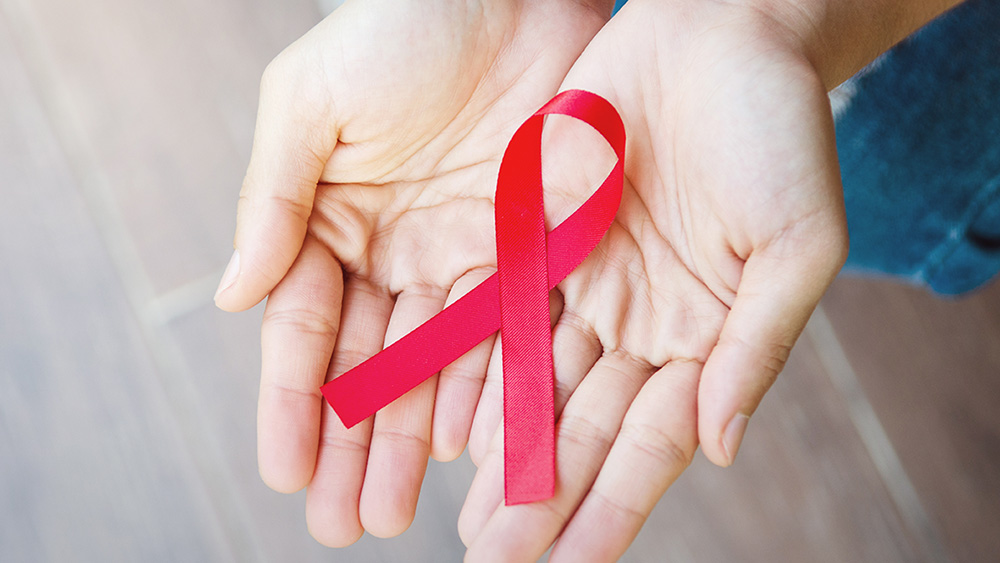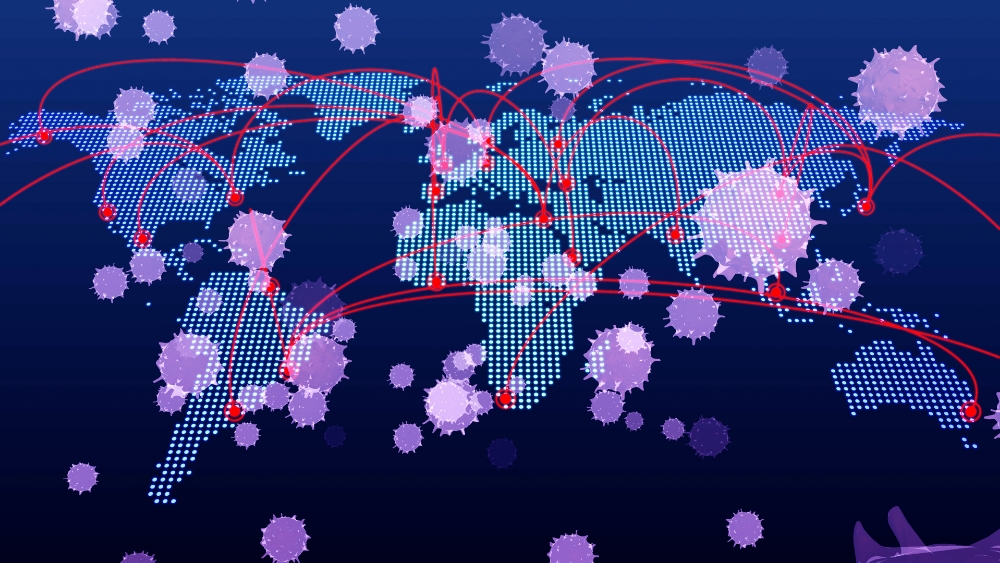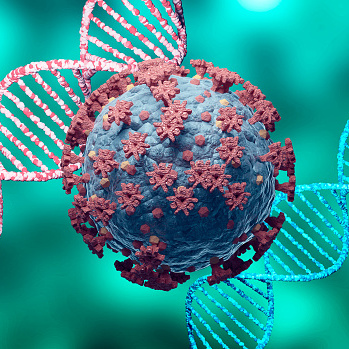Article Highlights
-
mRNA vaccines have prevented millions of deaths from COVID-19 and protected millions more people from severe symptoms.
- Scientists are using mRNA technology to develop experimental vaccines to fight HIV infection.
-
Studies are underway to determine the body’s immune response to experimental mRNA HIV vaccines.
By the end of November 2021, scientists estimate that mRNA COVID-19 vaccines had prevented at least 1 million deaths, 10 million hospitalizations, and 36 million SARS-CoV-2 infections in the United States.1 It took less than a year to develop these vaccines, thanks to the hundreds of researchers who had been working on mRNA vaccine technology for decades before the COVID-19 pandemic. That foundation of knowledge supported the creation of safe, effective mRNA vaccines to help control the spread of COVID-19, protect people from severe symptoms, and reduce the risk of death.
Now scientists aim to harness the power of mRNA technology to fight other diseases, including HIV. HIV is a long-term viral infection that destroys the body’s immune system. Since HIV was discovered more than 40 years ago, the virus has taken between 25 million and 42 million lives.2 No cure or preventive vaccine exists, although treatment can greatly lower the risk of life-threatening infections, prolong life, and prevent transmission of the virus to others. Some medicines called pre-exposure prophylaxis (PrEP), if taken regularly, can reduce the risk of getting HIV.

Mary Marovich, M.D., DTMH, FACP, directs NIAID’s Vaccine Research Program and coordinates NIH-supported studies of HIV vaccines around the world. Photo credit: Dean Hatch.

Mary Marovich, M.D., DTMH, FACP, directs NIAID’s Vaccine Research Program and coordinates NIH-supported studies of HIV vaccines around the world. Photo credit: Dean Hatch.
Developing mRNA HIV vaccines
Mary Marovich, M.D., DTMH, FACP, leads efforts at the National Institute of Allergy and Infectious Diseases (NIAID) to develop HIV vaccines. Despite steady work on vaccines and tremendous scientific insights into how the virus works, progress using traditional vaccine strategies has been slow.
“HIV is very challenging in terms of vaccine development,” Marovich explained. “mRNA technology is giving us new hope for creating vaccines to fight HIV.”
In March 2022, the HIV Vaccine Trials Network (HVTN) launched HVTN 302, a study that’s testing three experimental mRNA HIV vaccines designed and developed with support from NIAID. Each of the 108 study volunteers was vaccinated with one of the three experimental vaccines, given at varying doses and followed by booster doses. Scientists collected samples of blood and, in some cases, of lymph nodes to check immune responses to the mRNA vaccines. Medical teams closely monitored the volunteers’ health.
When the trial ends in mid-2023, scientists hope to know enough about the vaccines’ safety and the body’s immune responses to decide whether to proceed with larger trials. If the mRNA vaccines stimulate immune responses against HIV, more studies will be needed to learn whether the vaccines can prevent HIV infection.

The HIV awareness ribbon is a reminder that HIV remains a worldwide health crisis. In 2021, 38.4 million people were living with HIV. mRNA vaccine technology offers new hope for developing safe, effective vaccines to reduce the global toll of HIV/AIDS.

The HIV awareness ribbon is a reminder that HIV remains a worldwide health crisis. In 2021, 38.4 million people were living with HIV. mRNA vaccine technology offers new hope for developing safe, effective vaccines to reduce the global toll of HIV/AIDS.
Overcoming challenges
“HIV has many tricks up its sleeve, making it hard to develop an effective vaccine using standard methods,” explained Marovich. “As one of the fastest-mutating viruses, HIV has millions of variants. By comparison, the number of SARS-CoV-2 variants of concern or variants of interest causing the COVID-19 pandemic is about a dozen [as of December 2022].”
Other factors also limit the usefulness of existing methods of vaccine development.
“Old-school methods of producing experimental HIV vaccines using whole, inactivated viruses are not safe enough to study, so instead specific complex proteins have to be stabilized and manufactured — a process that often takes years and is very challenging and costly,” Marovich said. “The process of creating mRNA vaccines does not require cell culture or animal material. The manufacturing process stays about the same regardless of the sequence of the mRNA. By using mRNA technology, we can make new vaccine products quickly, in a matter of weeks or months.”
Scientists can then test the mRNA vaccines safely and efficiently.
“We hope that mRNA vaccines can stimulate the immune system to create powerful antibodies that neutralize many strains of HIV,” Marovich explained. mRNA vaccines may generate a more effective immune response than previous vaccine designs, based on the immune response generated by COVID-19 vaccines.
“Most likely, to provide long-lasting protection from HIV, a vaccine strategy will require a variety of vaccines, boosters, and perhaps even time-release elements to stimulate different parts of the immune system,” Marovich said.
Scientists are also studying the potential of mRNA vaccines to fight other diseases, including influenza, dengue fever, respiratory syncytial virus (RSV), malaria, rabies, tuberculosis, cancer, and other coronaviruses, such as Middle East respiratory syndrome (MERS).
Where can I go to learn more?
NIH Launches Clinical Trial of Three mRNA HIV Vaccines
-
NIAID is supporting some of the first human tests of HIV vaccines based on mRNA technology.
-
The U.S. Department of Health and Human Services offers information about prevention, testing, and living with HIV infection.
-
NIAID is the main funder of HVTN, the world’s largest publicly funded international collaboration evaluating vaccines to prevent HIV/AIDS.
Sources
-
Schneider, E. C., Shah, A., Sah, P., Moghadas, S. M., Vilches, T., & Galvani, A. P. (2021, December 14). The U.S. COVID-19 vaccination program at one year: How many deaths and hospitalizations were averted? Commonwealth Fund Issue Briefs. Retrieved January 3, 2023, from https://www.commonwealthfund.org/publications/issue-briefs/2021/dec/us-covid-19-vaccination-program-one-year-how-many-deaths-and
-
Fischer, W., Giorgi, E. E., Chakraborty, S., Nguyen, K., Bhattacharya, T., Theiler, J., Goloboff, P. A., Yoon, H., Abfalterer, W., Foley, B. T., Tegally, H., San, J. E., de Oliveira, T., Network for Genomic Surveillance in South Africa (NGS-SA), Gnanakaran, S., & Korber, B. (2021). HIV-1 and SARS-CoV-2: Patterns in the evolution of two pandemic pathogens. Cell Host & Microbe, 29(7), 1093–1110. https://doi.org/10.1016/j.chom.2021.05.012
 An official website of the United States government
An official website of the United States government



